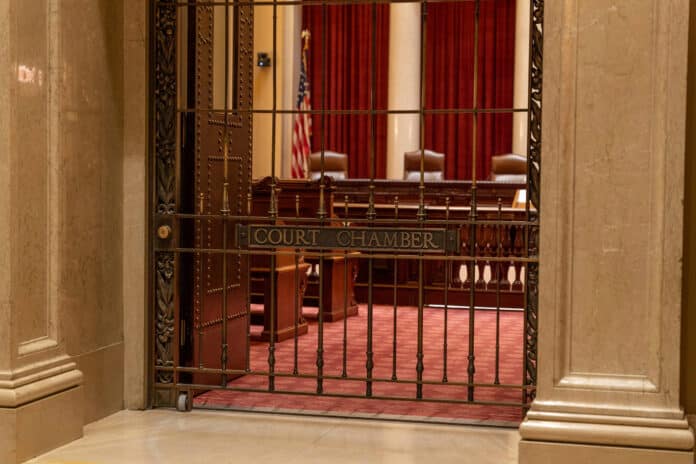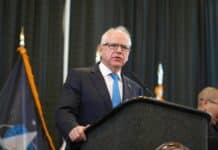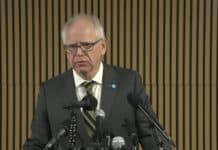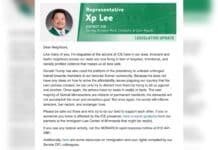The Minnesota Supreme Court heard oral arguments Wednesday from attorneys for the Republican Party of Minnesota and Gov. Tim Walz over whether the Democratic governor prematurely called a special election last month to fill the House District 40B seat.
If the court were to rule in the petitioners’ favor, it could delay the special election and prolong the state House Republicans’ 67-66 seat advantage over Democrats.
DFL House leaders have said they plan to hold their boycott until a newly-elected member for 40B is sworn in early next month. A delay could jeopardize their return date and potentially their political strategy. Chief Justice Natalie Hudson told the parties “we will make our decision as soon as we can.”
The state party and the Minnesota Voters Alliance are co-petitioners on the lawsuit they filed on Jan. 4, following Walz’s Dec. 27 issue of a writ of special election for the Roseville-area legislative seat.
Walz issued that writ the same day Democrat Curtis Johnson informed Walz in writing that he would abide by a Ramsey County judge’s ruling that he should not take the oath of office for the 40B House seat he was elected to on Nov. 4. In that ruling, Judge Leonardo Castro wrote that Johnson did not meet the residency eligibility requirements to represent the district and ordered him not to take the oath of office.
On Wednesday, attorneys for the petitioners argued before the justices that Johnson did not yet hold an election certificate for the seat and therefore could not resign. They argued that Jamie Becker-Finn was still holding an election certificate for the seat the day Walz issued his writ for the special election, and therefore Walz violated state statute, which says the governor shall issue a writ for a special election five days after a vacancy has been created.
“If the legislature was going to allow someone to abandon their office, we need to know how firm that abandonment is,” said Ryan Wilson, an attorney representing the Republican Party of Minnesota “Are they going to change their mind? What if they did show up on the first day of session and try to present [an election certificate]. But we already have an election going on [for that seat]?”
Wilson was an attorney on Donald Trump’s Minnesota-based legal team when Democrats tried, and failed, to remove him from the Minnesota presidential ballot in 2023. Nathan Hartshorn, an assistant attorney general under Keith Ellison, argued for the Walz administration.
Justices who heard the argument included Paul Thissen, a former DFL legislator who was appointed by Democratic Gov. Mark Dayton.
“They (the Walz administration) are arguing he was a future incumbent,” Thissen said during dialogue with the petitioners’ attorneys. “He is a person that will be an incumbent in the future and so he’s actually an incumbent who is resigning. What about that?”
“That would stretch the meaning of incumbent,” Wilson replied.
While seven justices serve on the court, one justice, Karl Procaccini, has recused himself from the case. Procaccini, who served as general counsel and deputy chief of staff for Walz, was appointed to the bench by the governor in 2023.
Hank Long
Hank Long is a journalism and communications professional whose writing career includes coverage of the Minnesota legislature, city and county governments and the commercial real estate industry. Hank received his undergraduate degree at the University of Minnesota, where he studied journalism, and his law degree at the University of St. Thomas. The Minnesota native lives in the Twin Cities with his wife and four children. His dream is to be around when the Vikings win the Super Bowl.












